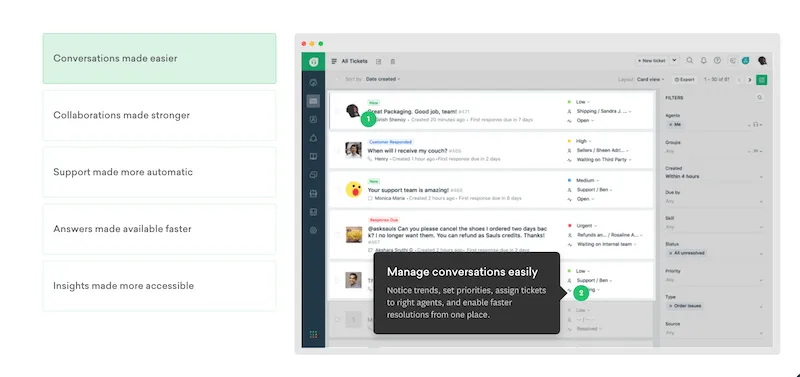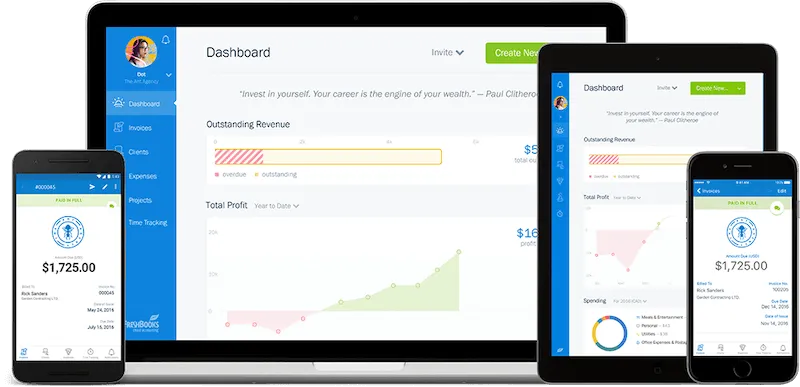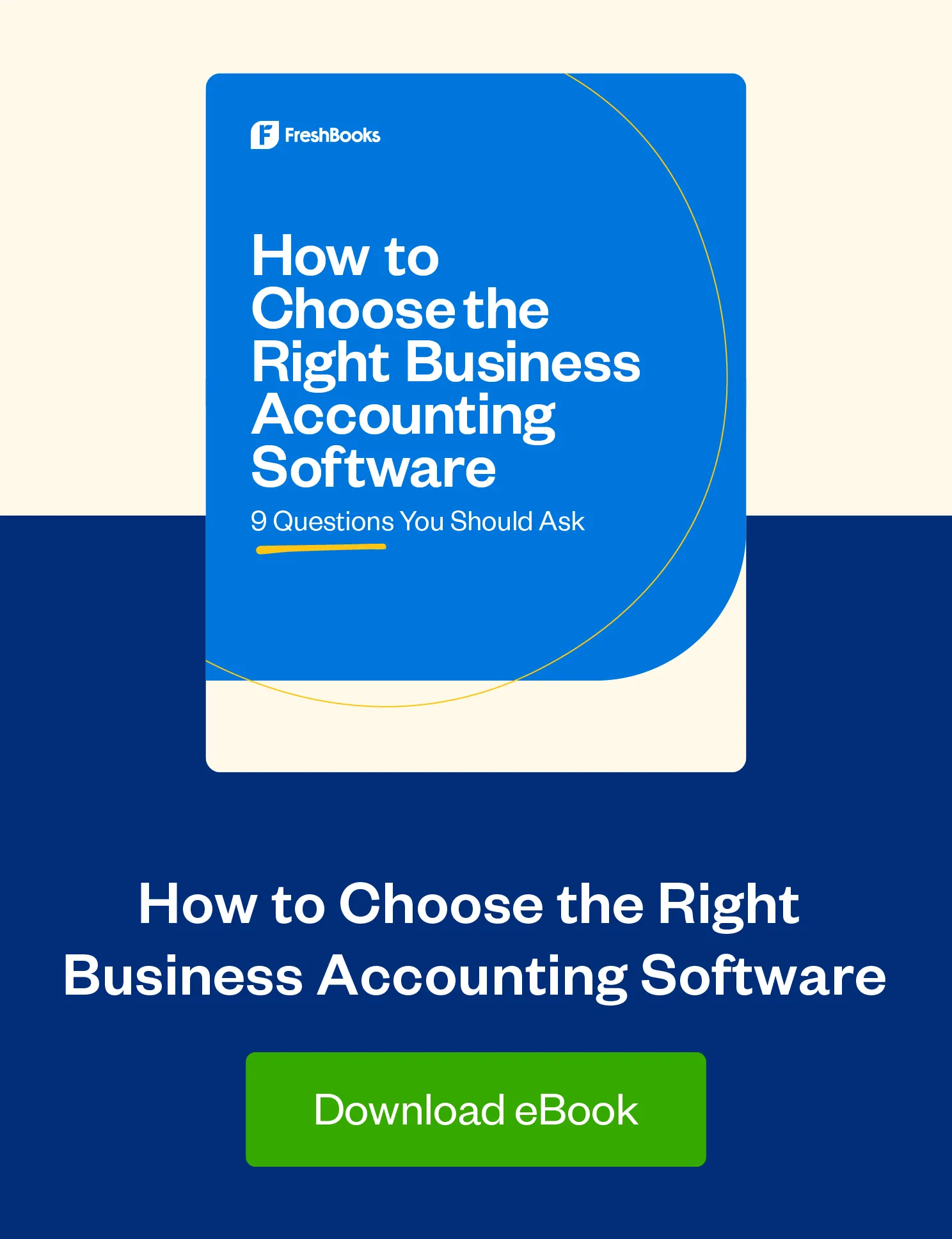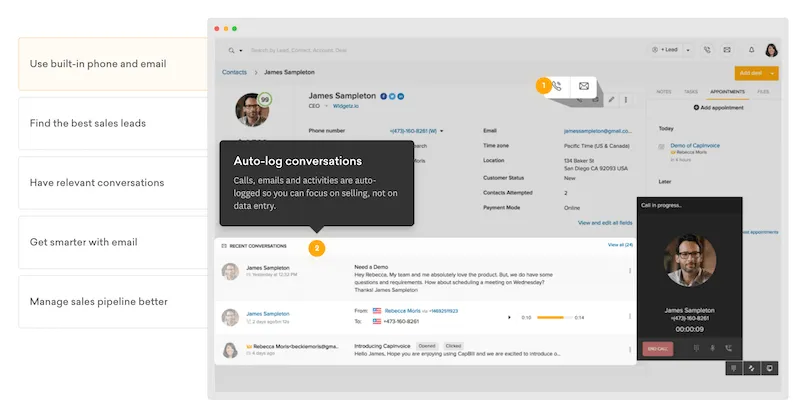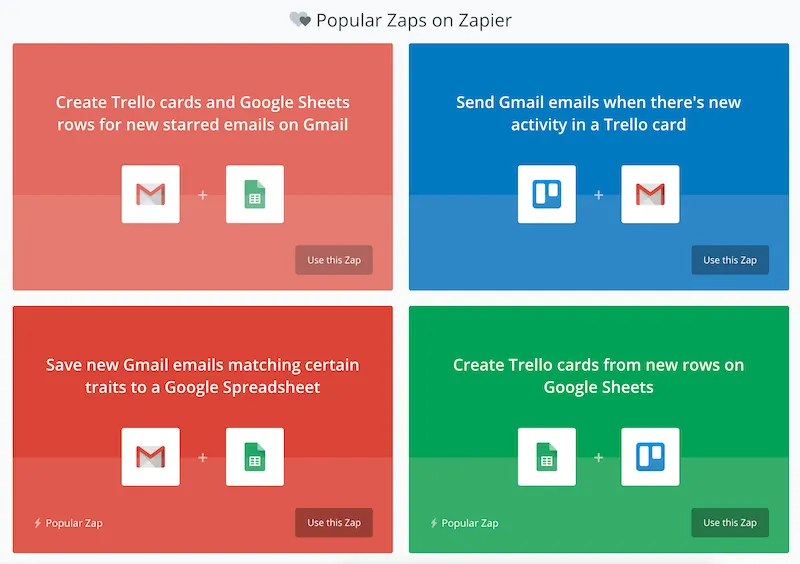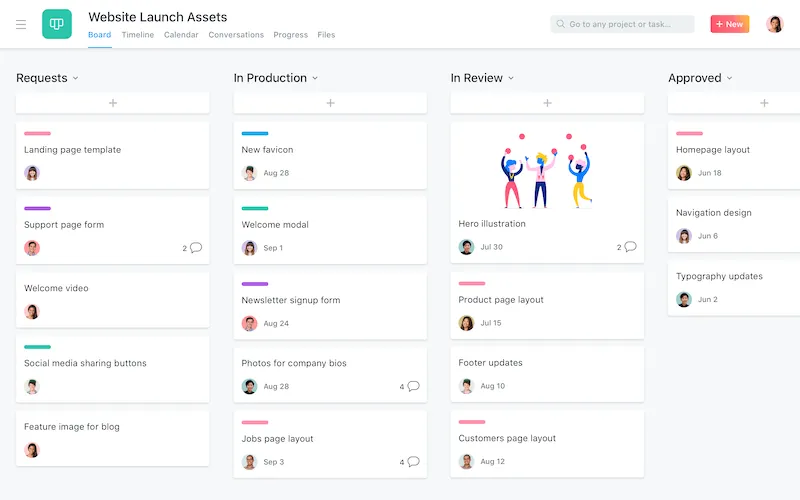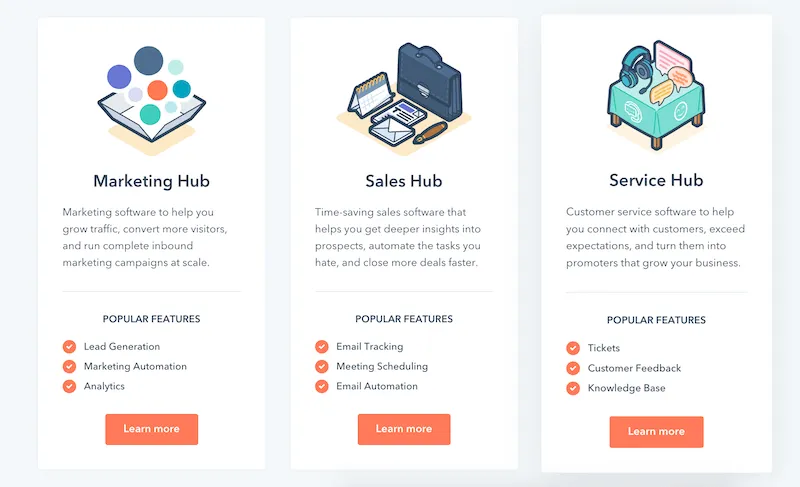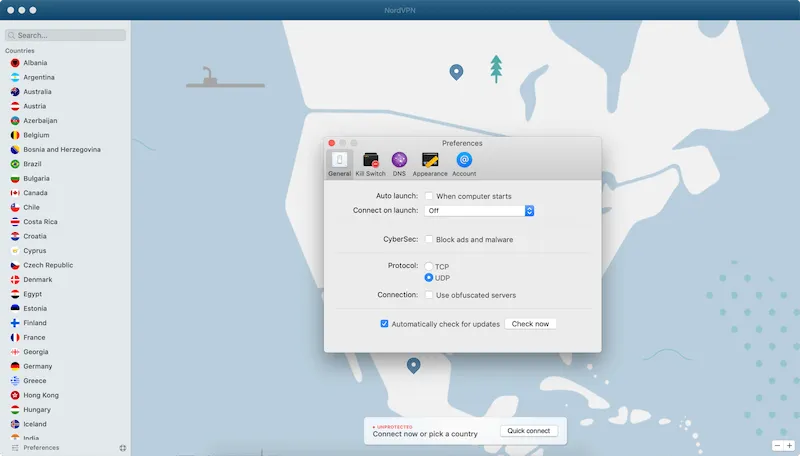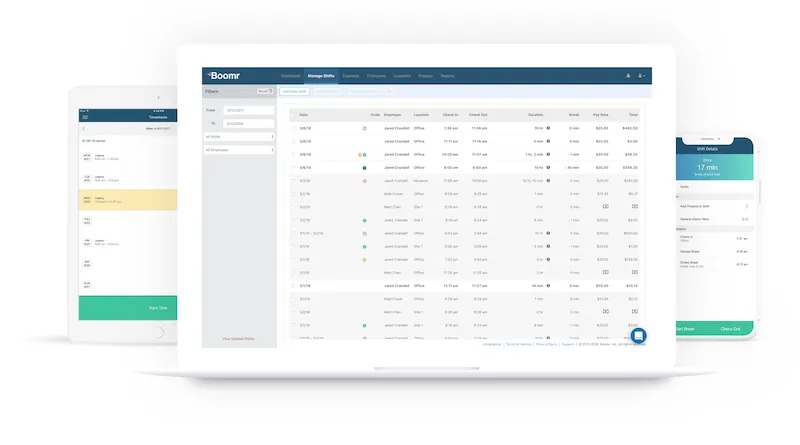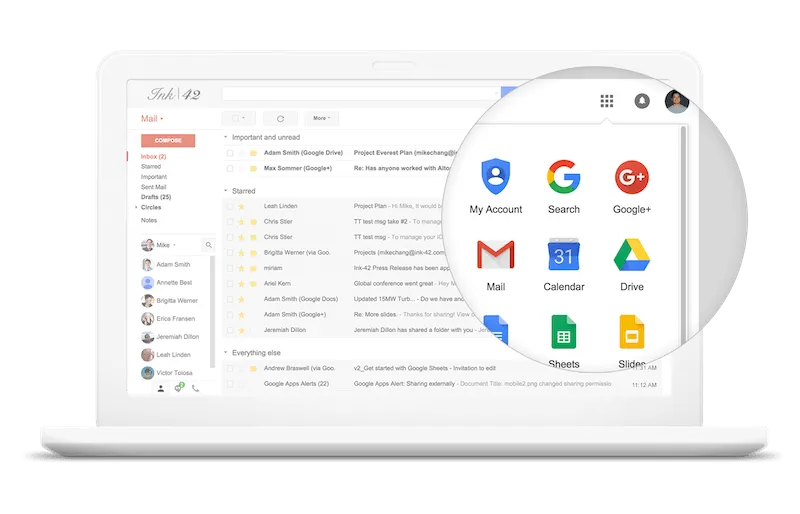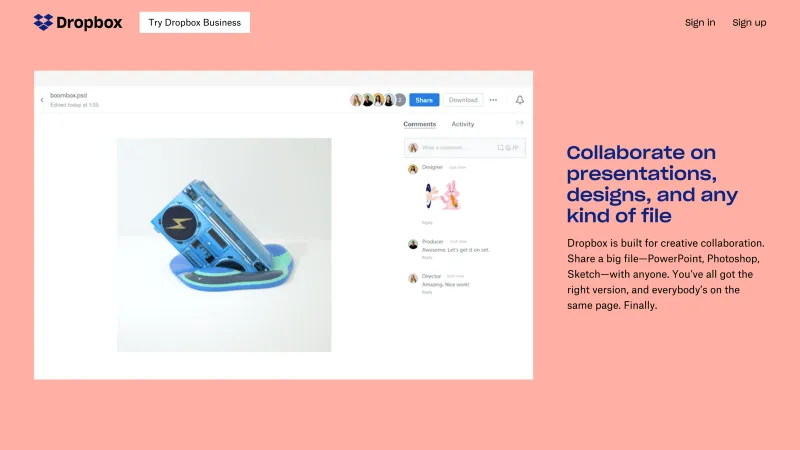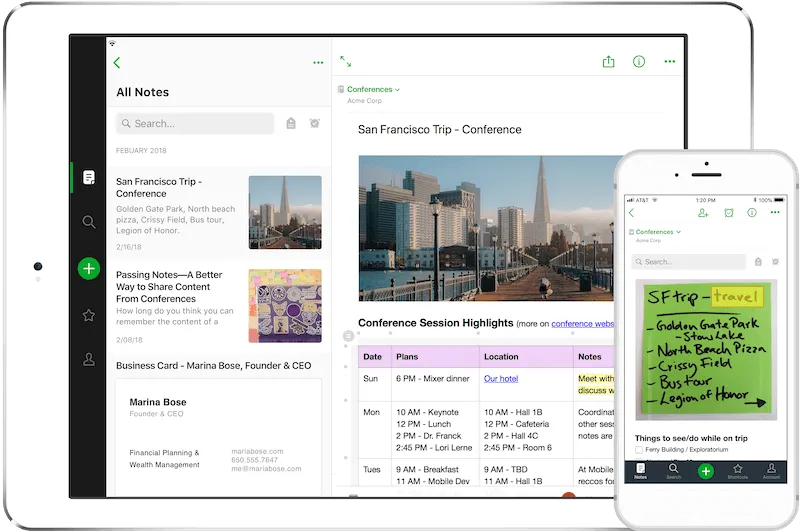We've arranged these essential apps by category according to the type of assistance you’ll need.

We get it. Finding the best small business apps for your company may feel like a needle-in-a-haystack kind of task. Worse still, nobody’s going to pay you for solving it.
The good news is we’ve already done the heavy lifting for you. What follows is a curated list of 36 business apps, each designed to make your work more efficient and your life a tad easier.
Tools for Customer Support
The quality of your customer support can make or break your business. According to HubSpot, 93% of customers satisfied with the level of customer experience are likely to come back for repeated purchases.
Here’s a set of business tools that will help you put your best foot forward.
Finding the best small business apps for your company may feel like a needle-in-a-haystack kind of task.
1. Top Pick: Freshdesk
Freshdesk is an omni-channel help-desk solution that streamlines customer support. The platform combines e-mail, phone, chat and social media support as well as self-service components like chatbots and a knowledge base.
Freshdesk also provides an overview of all customer interactions and makes managing them a breeze. The tool has a built-in automation feature that takes over handling tickets, offloading repetitive tasks and distributing the workload.
Note: Freshdesk integrates with FreshBooks
2. ZenDesk
Another interesting option in the customer-support lineup. ZenDesk has been around since 2007 and offers a solid roster of UX features, including skill-based ticked distribution and support for answer bots.
The developer boasts quick setup, scalability for growing businesses and robust customization options. ZenDesk integrates with over 700 other apps, including FreshBooks.
Note: ZenDesk integrates with FreshBooks
3. HappyFox
HappyFox leans on simplicity and a user-friendly approach. And that’s definitely something you want to consider if startup time and minimal training is what you’re looking for in business tools.
The noteworthy thing about the platform is an even distribution of features across all pricing tiers. If you’re moving from a different service provider, HappyFox offers onboarding and help with the transition.
Note: HappyFox integrates with FreshBooks
Invoicing and Accounting Tools
The awful truth about small business finances is that they often intertwine with personal ones. This is especially true for solopreneurs and freelancers who don’t have to worry about running accounting for a whole company.
As a consequence, it doesn’t take long to lose track of what goes in and what goes out. So, if you’re still trying to make sense of expenses by scribbling them down on loose pieces of paper, behold, there’s a better way. Or several for that matter.
4. Top Pick: FreshBooks
We may be biased, but FreshBooks is our top and only pick for managing your small business accounts.
FreshBooks simplifies invoicing and accounting for small businesses. The app covers all the bases of smart finances, including:
- Invoicing and payments
- Expense tracking
- Financial reporting
What’s more, FreshBooks can help you manage your time better with time tracking and project management tools that can easily be converted into invoices when work is complete.
Curious? Jump over here to sign up for a free trial.
Payment Platforms
The days of mailing checks are fading fast. And while there are fees associated with online payment platforms, most small business owners find that getting paid faster and convenience justify the cost.
There are a few popular ways of collecting payments today — Square, PayPal, and e-transfer to name but a few. They all have different fees associated and it’s worth doing your research to understand which is best for you.
Many people use and love them for running their business. But one gap is that they’re not part of your accounting bundle. Sure they’re a good way of collecting money, but they’re not integrated with your accounting software.
5. Top Pick: FreshBooks Payments
FreshBooks Payments is offered on all FreshBooks accounts. It allows your customers to pay directly through invoices and automatically records each payment in your account. The fact that FreshBooks Payments is integrated with your FreshBooks accounts means you’ll have less manual reconciliation to do and you’ll know at-a-glance the payment status of your invoices.
6. Stripe
If you have international clients, you can use Stripe’s integration with FreshBooks to accept payments. Connecting Stripe to FreshBooks takes less than 10 minutes and will require you to create a free Stripe account (or log in to an existing Stripe account).
Note: Stripe integrates with FreshBooks
CRM Tools
At some point, you might need a business tool that will help you build rapport and maintain positive business relations with your clients. And this is where CRM (customer relationship management) software comes into play.
Consider the following as a long-term investment. Even if you don’t need them just yet, they will come in handy once you’re ready to scale your business and grow your client base.
7. Top Pick: Freshsales
Freshsales is a perfect CRM for tracking the progress of your deals, all the way from lead acquisition to conversion. It comes with phone and e-mail support and is a good match for e-commerce, SaaS or retail businesses, just to name a few.
The app uses artificial intelligence to score leads as well as automate tasks like sending follow-up emails or tracking user behavior.
8. Agile CRM
Apart from the essential CRM toolkit, Agile blends in marketing, customer support and automation tools to deliver a complete customer experience package.
Interestingly enough, the platform uses gamification mechanisms so agents can measure and compare their performance by the number of closed deals or generated revenue.
Note: Agile CRM integrates with FreshBooks
9. You Don’t Need a CRM! (noCRM.io)
The tongue-in-cheek name reflects a philosophy of simplicity behind the platform. You Don’t Need a CRM! leans on a simple interface and minimalistic workflow so users can focus on the actual work.
In the developer team’s own words: “noCRM.io is the perfect match for small businesses ranging from one to 500 employees that need a proactive sales approach to convert leads into deals.”
Note: noCRM.io integrates with FreshBooks
Connector Tools
Just as you would expect a degree of order in a master craftsman’s toolbox, similar rules apply to your digital toolkit. In other words, you want your business tools organized and at the ready so you can use them in the most efficient way.
Connector tools create workflows between apps and services so they can “talk to each other” and exchange information. If you are tired of manually copying information back and forth, you’ll love these.
10. Top Pick: Zapier
Zapier is one of the most popular tools for pairing several standalone applications across different environments. It allows you to connect your favourite apps into workflows called Zaps. Once a Zap is triggered, it automatically carries out a pre-programmed function.
For instance, you can create a Zap that will save all e-mail attachments you receive to Dropbox or Google Drive. If you need some inspiration, here’s a small sample of Zap templates that will get you started.
Note: Zapier integrates with FreshBooks
11. IFTTT
IFTTT is an integration platform that works both for personal use and small business needs. It uses “recipes” that are essentially sets of rules automating the exchanges of information between different services.
To give you an example, if you’re on social media, it can collect and log Twitter mentions in an Excel spreadsheet or sync publication schedules for social media content with Google Calendar.
12. Microsoft Flow
Microsoft’s take on connector apps allows users to pair apps and services using “flows.” The service is based on a combination of triggers and conditions that determine the outcome of flows.
Microsoft makes a pretty compelling business case and claims a 362% increase in ROI when using Flow along with PowerApps, Microsoft’s app-development platform for businesses.
Project and Team Management
If you’re running multiple projects and struggle to keep track of who’s doing what, and why they’re doing it in the first place, these set of project management apps will set you straight.
13. Top Pick: Asana
An aesthetically pleasing work-management platform, Asana gives you a complete overview of the projects you’re working on. The app supports scheduling, a progress tracker, and a whole range of team collaboration tools.
Asana’s minimalistic user interface makes it easy to examine the bigger picture and observe how each project unfolds. You can create and run projects internally or collaborate with your clients on their end.
14. Basecamp
Basecamp is another strong contender and a recognizable brand in the world of project management. It’s a collaborative digital space that allows users to distribute work, assign tasks, track how individual projects are progressing or discuss the nitty-gritty with the team without leaving the app.
15. Trello
In Trello’s own words: “Trello utilizes the concept of boards (which correspond to projects) and within boards, there are cards (which represent tasks). The cards contain lists which can be used to track the progress of a project or to simply categorize things.”
The app has a minimalistic interface that works especially well for keeping complex projects in focus. Trello’s a perfect match for all types of businesses, big and small alike, and it’s been successfully used by organizations like Kickstarter and UNICEF.
Note: Trello integrates with FreshBooks
16. Slack
Slack features channels that can either represent a project, team or a particular client. You can think of channels as self-contained chat rooms for discussing projects or sharing files. It’s basically a company-wide communication tool, but better.
Note: Slack integrates with FreshBooks
Marketing Automation Tools
Marketing your business ain’t easy. It’s even harder when you have to juggle day-to-day responsibilities and, let’s not forget about actually delivering client work.
The following set of business apps will help you stay on top of the marketing game.
17. Top Pick: HubSpot
If you’re looking for a Swiss army knife of inbound marketing, HubSpot might be just the thing for you. It comes with everything you need to launch, manage and evaluate a marketing campaign, right out of the box.
Landing pages, blog posts, e-mail campaigns, calls-to-action, A/B testing and CMS (content management systems), you name it. HubSpot covers all the bases. Plus, it rakes in consistently positive reviews around the web.
Note: HubSpot integrates with FreshBooks
18. Campaign Monitor
Campaign Monitor is geared toward e-mail marketing. You can design e-mail campaigns from scratch or pick one of the pre-made layouts and customize it to your liking. An intuitive drag-and-drop editor lets you place elements like text blocks, images and buttons just where you want them, no coding required.
Note: Campaign Monitor integrates with FreshBooks
19. HootSuite
HootSuite is a cloud solution for managing social media presence. Create, schedule and publish content across different channels, and automate some of your day-to-day activities to save time and effort.
As usual, you get analytics tools to measure the effectiveness of your campaigns as well as collaboration support for distributing work, assigning tasks and sending updates across the entire team.
20. Mailchimp
The second e-mail marketing tool on our list, Mailchimp combines the wonders of digital native campaigns (drag-and-drop layouts, automation, analytics, remarketing) with a more traditional approach.
Mailchimp’s postcard service allows users to design and send beautiful postcards to prospects, loyal customers or anybody who might be interested in what they’re selling. A nice touch in the age of electronic communication.
Note: Mailchimp integrates with FreshBooks
Tools for Security and Digital Signatures
Digital security is a topic never gets old—and rightly so. If you think you’re an unlikely target for cybercriminals, think again.
The 2019 Cyber Readiness Report by Hiscox found that 47% of small businesses reported at least one security incident, a significant increase from 33% the previous year. Worse still, the cumulative damages for small- and medium-sized companies averaged $14,000 and $184,000, respectively.
21. Top Pick: NordVPN
The popularity of VPN (virtual private network) software is on the rise due to growing security and privacy concerns. NordVPN is a noteworthy option that can keep your business secure from prying eyes.
Not familiar with the concept of a VPN? Here’s Nord’s 101: “Imagine VPN as a hack-proof, encrypted tunnel for online traffic to flow. Nobody can see through the tunnel and get their hands on your internet data. NordVPN gives you peace of mind each time you use public Wi-Fi, access personal and work accounts on the road, or want to keep your browsing history to yourself.”
The app works on any modern device and operating system, including iOS, Android, Windows, and Mac.
22. LastPass
Still scribbling login credentials on elusive Post-it Notes? Running a business comes with the burden of having to remember all kinds of pesky login details. Luckily, there’s a modern solution to a modern problem.
LastPass is a password manager that allows users to generate and securely store passwords and login credentials in a hassle-free way. The best part is all you have to remember is one master password to access the information.
23. DocuSign
DocuSign is a cloud platform that allows users to upload, share and sign documents like contracts and agreements. The app boasts an average saving of $36 per document compared to paper documents.
Whether you’re tired of pushing pen-and-paper contracts or just want to go green, consider switching to digital signatures. And you might even save some trees in the process.
Tools for Time Management and Organization
Much of the leverage and competitive edge in small business, or in any business for that matter, lies in efficient time management and nifty organization skills.
The following set of business apps will help you achieve just that and find a better balance in your work and personal life. And just in case you’re wondering, FreshBooks has a time-tracking feature too!
24. Top Pick: Boomr
In a nutshell, Boomr lets you track employee work hours and automates much of the tedious scheduling process. The app automatically generates payroll reports, supports GPS tracking, and, best of all, can save a whopping 40 hours of the time you’d have to spend filling in timesheets. Simple.
25. When I Work
When I Work is a shift-scheduling tool that improves the way companies manage their workforce. The dev team behind When I Work states the app can save business owners eight hours each week on planning and scheduling.
26. Calendly
How many times have you tried to set up a meeting or schedule a call with a client but just couldn’t settle on a date and time that would stick?
Calendly is a tiny business app that takes the burden of scheduling meetings off your back. All you have to do is define a preferred time window and share it with your clients so they can pick up the most suitable option.
It adjusts time and date according to the target time zone so it’s great for working with international clients. Calendly syncs with Google Calendar, Outlook and iCloud.
Note: Calendly integrates with FreshBooks
Business Multitools
Business multitools are interconnected work environments that include word processors, spreadsheets, calendars, cloud storage and e-mail services, all in a well-knit package.
27. Top Pick: G Suite
If you’ve ever used a free Gmail account for personal use, you’ll feel right at home with its business counterpart. Apart from a custom e-mail address in place of a @gmail.com suffix, G Suite gives you 30 gigabytes of cloud storage, dedicated support, advanced security options, and the ability to create and manage multiple accounts for your team.
Note: G Suite integrates with FreshBooks
28. Office 365
Google’s strongest competitor is a solid option if you love Microsoft’s Office line of products (Word, Excel, PowerPoint and Outlook). It’s a step up from its desktop-only version as you can install each app on any device that runs Windows, Mac, iOS or Android. Office 365 throws in a hefty one terabyte of cloud storage and promises the same 99.9% uptime Google does.
Cloud Storage
Storing files in the cloud has become a viable alternative to keeping traditional pen-and-paper business records. If you don’t feel like keeping mounds of paperwork at your HQ, you might want to take a closer look at the following solutions.
29. Top Pick: DropBox
A standard business plan gives you three terabytes of cloud storage for starters and strong security measures to keep your files safe. It’s possible to bump up the available space, depending on your needs and budget. And if you ever happen to delete an important file, you can restore it within a 120-day period.
30. Google Drive
Google Drive is an integral part of the G Suite environment. The basic plan is good for 30 gigabytes of storage but it’s possible to upgrade to Business or Enterprise tiers if you need unlimited space.
31. Microsoft OneDrive
Microsoft’s OneDrive comes as part of the Office 365 suite and starts at one terabyte of space in the Business Essentials tier. You can sign up just for the cloud service and get the same amount of storage at a lower price.
Honorable Mentions
To wrap up this list, I put together five extra apps that deserve a mention but don’t quite fit anywhere else. Every single one of them will work for you from day one, so be sure to check them out.
32. Evernote
Evernote is a note-taking app for capturing, storing and organizing notes in the cloud. It features a simple user interface, document scanning, synchronization between devices and powerful search functionality, all of which makes it a worthy companion for every business owner.
33. Fiverr
Fiverr is a community of freelancers where you can find and employ the services of writers, graphic designers, programmers, virtual assistants or marketers. Regardless of the project at hand, Fiverr has many remarkably talented people who can pull it off.
34. Grammarly
Grammarly is a smart writing assistant that goes way beyond simple spell-checking. The app scans your writing for grammar, spelling and punctuation lapses and points them out relentlessly. Since it lives inside a web browser, it makes sure your documents and business e-mails look the part.
35. Trustpilot
Trustpilot is a collective of user-generated business reviews. If you’re feeling adventurous, you should list your venture on Trustpilot and give customers a place to leave feedback. While positive reviews can prove a powerful marketing asset, negative voices will help you identify and patch up any flaws in your strategy.
36. Canva
Canva is a simple graphic design tool that makes creating logos, banners and other custom graphic elements a child’s play. Even if you’re not exactly on good terms with your muse, the intuitive drag-and-drop interface will allow you to create visual assets for without much hassle.
Bonus: Four Tips on How to Efficiently Use Small Business Apps
1. Choose a Scalable Environment
A business tool is only as good as its potential to scale. You don’t want a piece of software you’ll outgrow in a few months because it can’t keep up with your business needs. Once you’ve settled in comfortably on one platform, migrating data and work in progress is a nightmare.
2. Look for Integrations
Look for products that can mesh into workflows and exchange information automatically. You want to simplify your workflow as much as possible and make sure you don’t have to copy data by hand from one platform to another.
And just to make your life easier, most of the apps on this list play well with other popular business services, either through connector tools or right out of the box.
3. Test, Rinse and Repeat
Finding a solution that checks all the boxes is a process of trial and error. There’s no one best tool that would suit everybody. That’s why you should take advantage of trial periods, schedule demos and see what works and what doesn’t.
Sites like Capterra, Software Advice or Finances Online regularly review business tools and aggregate user reviews. Be sure to drop by and read what others are saying before you commit. It’s also a good idea to check both Google and Apple stores for feedback on mobile products.
4. Keep an Eye on Your Subscriptions
Subscription costs stack up quickly, so keep an eye on them. Every time I sign up for a new app, I add it to a tracking sheet along with the price and renewal date. I also create recurring calendar events to remind me before renewal comes around.
And that’s it!
Conclusion
I hope you’ve found some gems here to implement into your business. A word of caution though: Don’t get obsessed with productivity for productivity’s sake.
And if you ever catch yourself doing so, read our post explaining why productivity shouldn’t be your ultimate goal.
This post was updated in October 2019.

Written by Dawid Bednarski, Freelance Contributor
Posted on November 27, 2019
